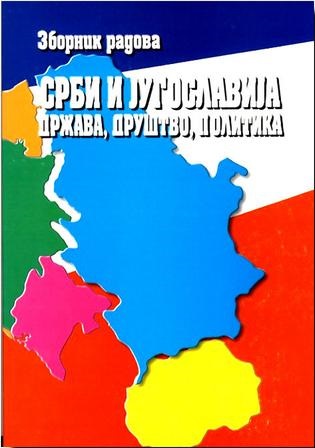Представе и стереотипи о Србији у виђењима Срба из Хрватске (1918–1929)
Images and Stereotypes on Serbia among Serbs in Croatia (1918–1929)
Author(s): Sofija Božić
Subject(s): Governance, Political history, Social history, Interwar Period (1920 - 1939), Ethnic Minorities Studies, Sociology of Politics
Published by: Institut za noviju istoriju Srbije
Keywords: Kingdom of SHS; Serbia; Croatia; Serbs from Croatia; Serbian ellite;
Summary/Abstract: The article explores the relations between the Serbs in Croatia and Serbia in the Kingdom of Yugoslavia. The results of the research indicate that the Serb people from the Croat territories, not having lost the feeling of spiritual unity with the Serbs of Serbia even under the Habsburgs, remained loyal to Serbia in the new state too. Not only the Radical, but also the Democrat/Independent-Democrat part of the Serb community cherished the awareness of Serbia’s greatness and importance. It seems the Serb national entity perceived in Yugoslavism no obstacle to attachment to Serbia, which had to be borne in mind even by that part of its political leadership which joined the Croats in their struggle against Belgrade in the second half of 1920s. However, when Serbian politicians and intellectuals from Croatia are in question, or at least those of their representatives who were active in public life, they left a number of interesting and provoking opinions about Serbia, mentality of its inhabitants and its leaders. These attitudes well reflect certain split between the political and intellectual elites from Serbia and Croatia. From a gamut of different views, ideas, experiences and reactions, the most representative have been picked out. Among them are the attitudes of politically independent intellectuals (Ljubomir Macić for example). Particularly critical attitude toward Serbia was shared above all by members of the circle around Svetozar Pribićević, as well as those who were democratically inclined. No harsh words about Serbia were to be heard from the ranks of the Radical politicians; on the contrary, they were prone to defend it, appreciating the victims and sufferings of Serbia and its contribution to the liberation and unification of all Serbs and other Yugoslav peoples. They were denouncing as irrational and unproductive the division into the Serbs from Serbia and from without it. The existence of two different political options, one of which siding with Zagreb, threatened to spoil not only the relations within the Serb community in Croatia, but also to weaken the feeling of loyalty of the Serbs from Croatia toward Serbia and to sever the ties binding them fast to their conationals from the Serbian mainland.
Book: Срби и Југославија. Држава, друштво, политика
- Page Range: 225-266
- Page Count: 42
- Publication Year: 2007
- Language: Serbian
- Content File-PDF

